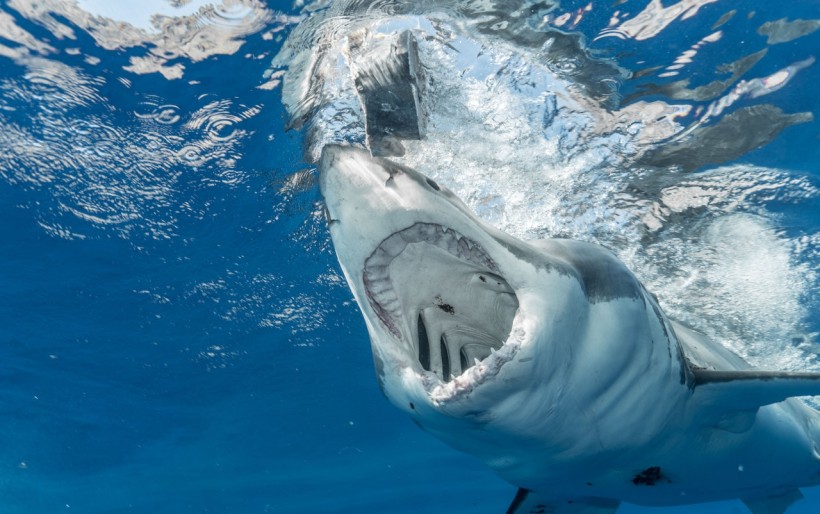Basking sharks are known for their traits of being gentle and how, despite their size, they feed on plankton. As such, a new discovery reveals that these sharks actually share a trait present in fast-swimming apex predators, which is being hot-blooded.
Basking Shark
According to Sci-Tech Daily, the basking shark is often known for being gentle and for feeding on plankton. However, a recent discovery has revealed that it shares similar traits to fast-swimming apex predators.
The basking shark was identified as part of the regional endotherms, meaning it had a body temperature higher than that of the water. Because of that, it was no longer cold-blooded, which would involve having temperatures matching the water.
Almost all fish and sharks are classified as cold-blooded species except for a few including mako sharks, tuna, and even the great white sharks. The NOAA reports that the great white shark, for example, has a temperature range of 50 to 80 °F.
Windows to the Universe reports that the average temperature of ocean surface waters is around 62.6 °F. As such, the water also gets closer the further down it goes with the coldest ocean depth being 27.3 °F under the Antarctic glacier according to Guinness World Records.
Known Feeding Patterns
The basking shark is known to feed on plankton despite having blood similar to some of the most deadly predators. For a while, scientists have attributed having warm blood to predators since it helped them with their athletic lifestyle.
Due to feeding habits, scientists said that predators evolved to match their requirements. This belief is now challenged by the discovery of a research team led by those from Trinity College Dublin, who found the same warm-blooded trait in a type of shark that was far from a predator.
Trinity's School of Nature Sciences' Haley Dolton, a Ph.D. Candidate and lead study author, shared how the basking shark was an example of how little was known regarding sharks. The author highlighted how there's still a lot to learn regarding the world's second-biggest fish.
In Irish waters, the basking shark was able to gain legal protection due to its significant population decline. Despite this, they could still face future challenges in their existence.
Implications of the Findings
Dolton explained that it was previously thought that regional endotherms use more energy, making their blood temperatures different from other types of fish. With the new discovery challenging this, there could be more work to be done to understand the species.
The new findings were said to potentially change previous assumptions made regarding these types of creatures when it came to their metabolism. Other changes that could've happened include the potential distribution shifts that happen amid climate change.
The author shares how they hope that the research will get the necessary momentum to effectively protect the basking sharks and other animals in Irish waters.
RELATED ARTICLE: Acoustic Tracking Technology Using AI Helps Scientists Eavesdrop on Pink Dolphins, Track Their Movements in Amazon River
Check out more news and information on Environment and Climate in Science Times.















